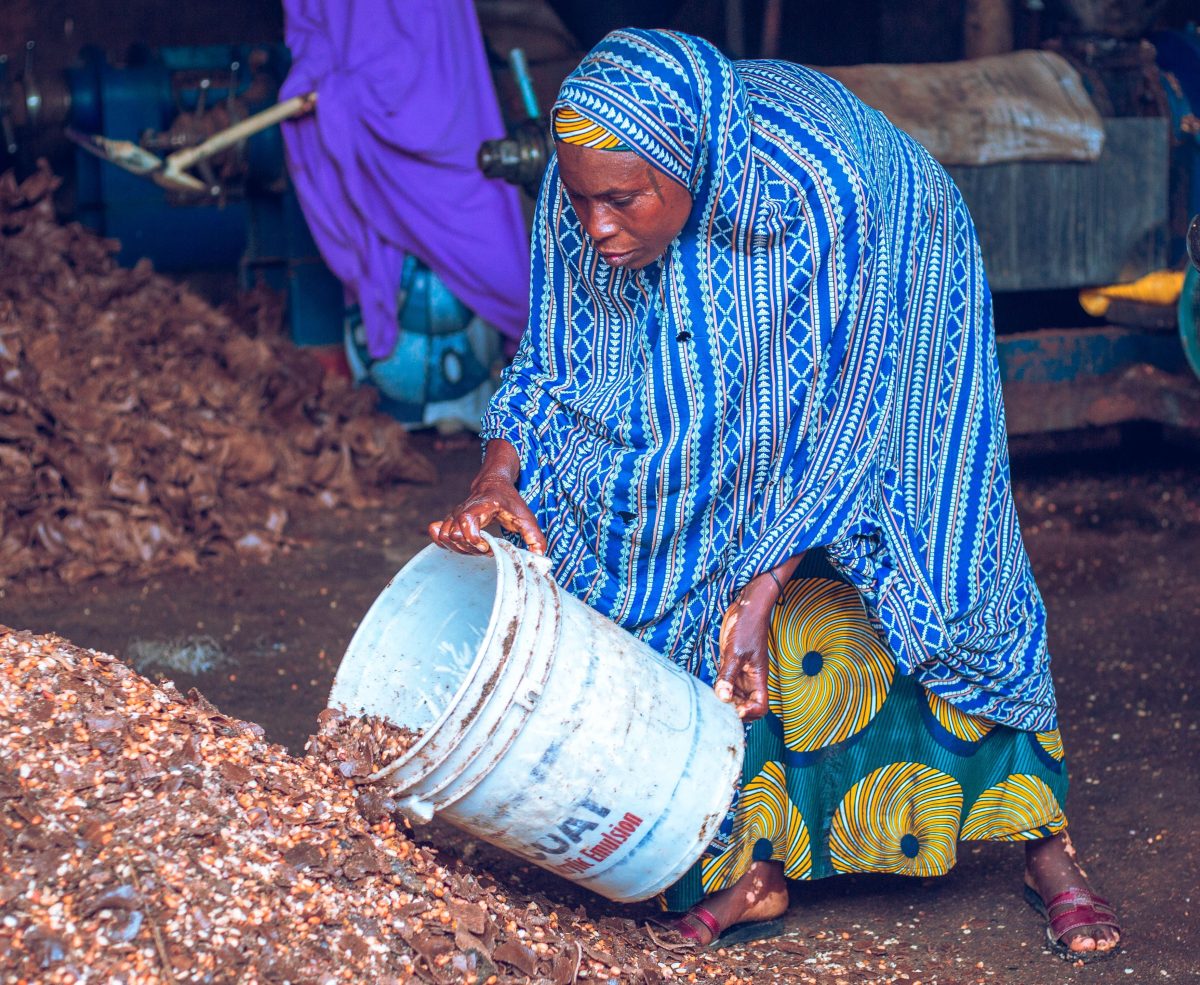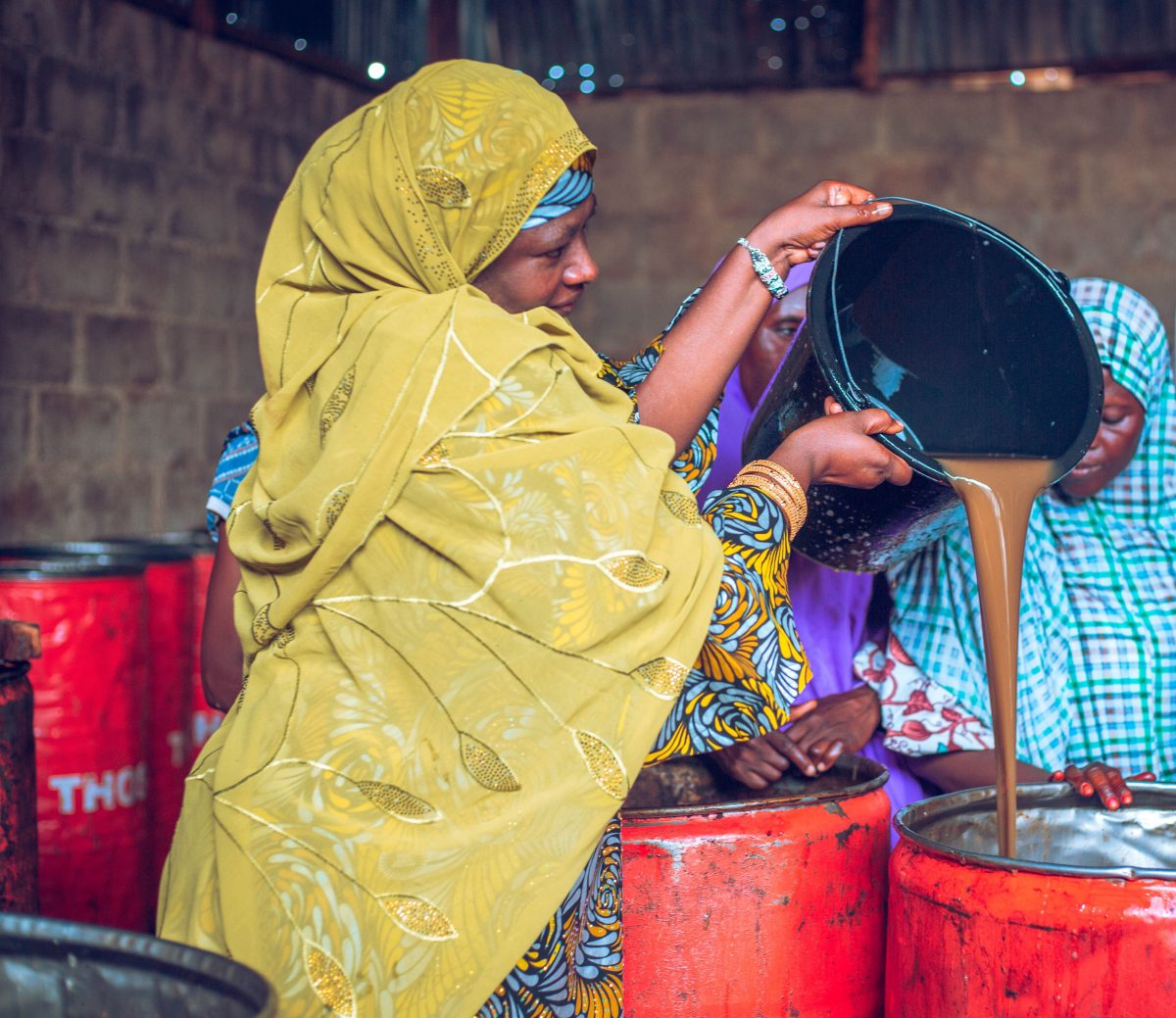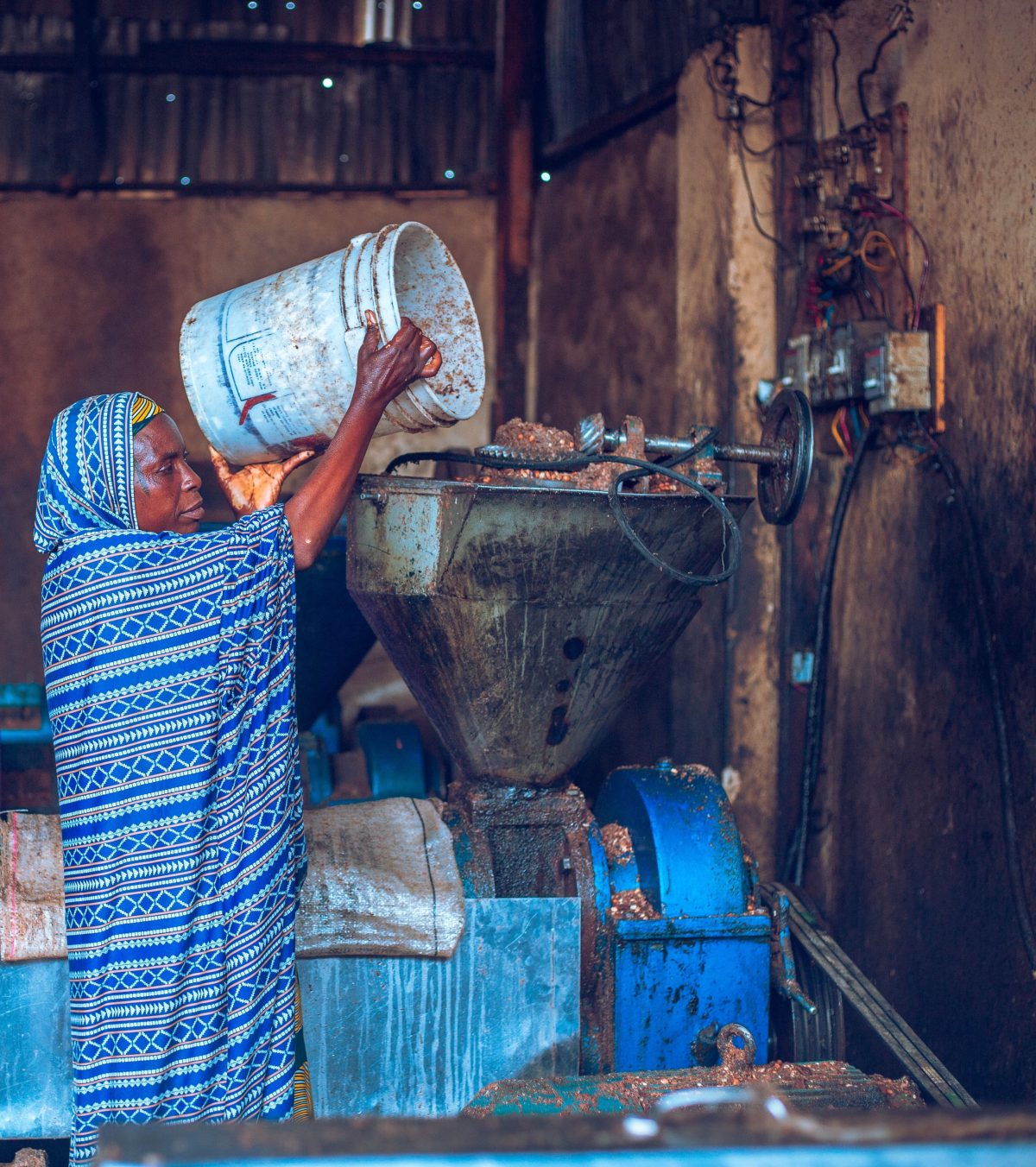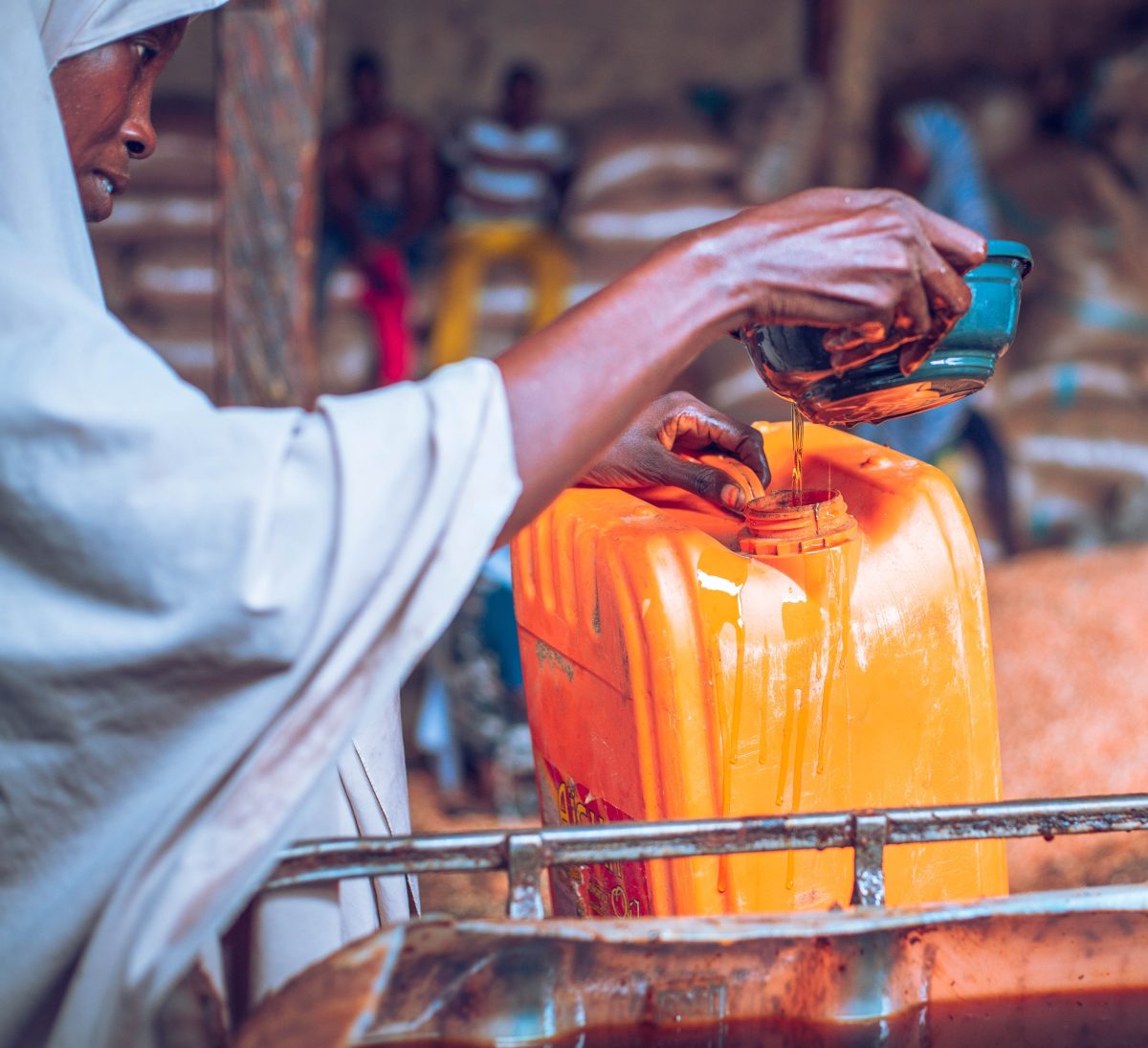The Women’s Agricultural Cooperatives Window is a component of the Investing in Women in Nigeria (IIW-Nigeria) program, a CAN $15.7 million program funded by Global Affairs Canada (GAC). This fund element comprises non-repayable grants to co-operatives working with women in Kano, totalling CAN $1.1m. Implemented by the AECF, the program seeks to enhance women’s economic empowerment by promoting women and young women’s participation in the traditional and non-traditional sectors of the agribusiness sectors.
-
Geography and Focus Area
Geographical Area: Kano
Funding available for:
Women Cooperative Societies that are commercially active in agricultural value chains in Kano with demonstrated linkages to women farmers and entrepreneurs.
Funding will target:
- Any of the following priority value chains in the Kano region:
- Maize
- Rice
- Groundnuts
- Soya
- Poultry
- Hibiscus
Any other agricultural value chains that demonstrate high engagement and impact for women
-
Eligibility
To be eligible for funding, cooperatives must meet the following criteria:
- Be a cooperative, association, or women’s group that is registered with a recognized institution/body (including Community Base Organizations and Trade Associations)
- Geographical Area: Kano
- Operating in the agricultural sector in Kano State
- Must have been operational within the last 2 years
- Have a minimum of 25 members
- Demonstrate a majority women owned/led.
- Be able to show commitment to match AECF funding based on a minimum contribution ratio: AECF to Cooperative: 1: 0.10 (10%) in cash or kind.
- Must have the requisite size of land required for an out-grower scheme if involved in primary production
- Must have enough space for the establishment of a Common Facility Centre (CFC) if involved in processing
- Must be willing to sign supply or distribution agreements with an anchor company
- Be proposing an investment that will lead to gender transformation and/or improving resilience to climate shocks in the medium term.
- Must be active as at the time of the application (at a minimum, activity evidenced by meeting minutes of cooperative members and verifiable financial records)
- Demonstrate commitment to gender equality and the empowerment of women in the conduct of the business.
- Request grant funding within the stipulated range as indicated below:
Minimum fund award CAN $ 10,000
Maximum fund award CAN $ 50,000
- MUST NOT be involved in any act of corruption. AECF requires that the applicant (including its staff, contractors, and suppliers) not be involved in offering third parties, or seeking, accepting, or being promised by third parties, for themselves or any other party any gift, remuneration, compensation, or benefit of any kind whatsoever, which could be interpreted as an illegal or corrupt practice.]
- MUST NOT be associated with prohibited activities by the Government of Nigeria, terrorism, money laundering, or a list that prohibits trading with some business (IFC (International Finance Corporation), USAID, UN, EU (European Union), and any other networks), United Nations Security Council resolutions issued under Chapter VII of the UN Charter. The screening will be conducted for all applicants and associated parties against provisions such as https://sanctionssearch.ofac.treas.gov/, www.worldbank.org/debarr World-Check, EU sanctions list, etc.
- MUST NOT have a default credit report from a licensed Credit Bureau in Nigeria
-
Sectors
Eligible cooperatives must demonstrate that their services are accessible and affordable, directly benefitting women in agricultural value chains, and encourage the adoption of climate and gender appropriate technologies, products, or services.
Proposed initiatives can cover any part of the value chain but must demonstrate an ambition to address systemic challenges that keep women from more effectively engaging in agricultural activities to be eligible for funding. Examples of cooperative models that will be attractive include (but are not limited to):
- Groups that provide services such as training, technical support, leasing equipment and access to finance to women in agricultural value chains.
- Market aggregators who provide new and sustainable opportunities for women to widen market access which will increase their profits and incomes.
- Processors of agricultural produce sourced from women or processors who provide employment opportunities for women.
- Groups that address climate-smart solutions and technologies at the household, production, transportation, and processing levels in the value chains.
-
Funds Available
Applicants are expected to submit a funding application justifying their requirements for the business and/ or idea to be funded, the funding amount and the project duration.
Funding must be used for a specific project, e.g., introducing new services or products, scaling up an existing enterprise or replication/expanding to a new market. Investees can apply for a range of funding depending on their development stages as follows:
- Minimum fund award CAN $ 10,000
- Maximum fund award CAN $ 50,000
AECF intends to fund a minimum of 40 cooperatives at an average of CAN$25,000 each.
Funding will be in non-repayable grants and disbursed in Canadian dollars. It is subject to meeting match funding criteria (see the section on Matching Contribution). Cooperatives should apply for funding depending on their development stage and capacity to absorb funding for the proposed project. The cooperative’s absorption capacity will be assessed during the application process and may be less than requested.
Funding payments will be milestone-based, and disbursements will be based on mutually agreed-upon milestones that must be achieved/delivered. AECF may introduce other conditions on disbursements on an individual application basis prior to contracting.
Duration of the funding agreement: 2 years
-
Investee Contribution
Grants will be awarded based on matching funds provided by the grantee, with a minimum grant-to-matching contribution ratio of 1:0.10 (10%).
All matching contributions are in-kind, although cash can also be provided.
Details of “in-kind” or “in cash” contributions are provided in the term sheet below.
-
Desired socio-economic impact
Cooperatives must demonstrate how they deliver and sustain social impact in their target markets. Specifically, this means the project will impact the number of other women in their value chain.
Cooperatives should highlight how they meet the following:
- Gender-inclusive practices in their operations (e.g., women-centered design).
- Demonstrable benefits to women include increased time for other activities, improved health, reduced drudgery, and increased household spending power.
- Projects must be environmentally friendly, and promoting climate-smart solutions is particularly encouraged.
Progress in attaining the above will be measured through (only those that apply will be measured):
-
- Number of new jobs created and or/sustained by the cooperative (80% being for women)
- The volume of products or services bought from women in the agricultural sector in CAN$ or USD equivalent.
- The volume of inputs and or services sold to women in the agricultural sector.
- Number of people reached through awareness creation or training.
-
Selection Criteria
Each applicant will be evaluated and scored against the following criteria:
- Provision of viable concept plans and sustainable business models developed through the support of a Business Advisory firm identified by AECF. The proposals must be technically sound. It should spell out how performance is measured and evaluated with all agreed-upon indicators, targets, and milestones.
- Must demonstrate a satisfactory performance record of the cooperative. Where available, testimonials of past performance should be submitted.
- Demonstrating significant impact and transformation for the cooperative members and other women in the value chain.
- Adoption of a climate-smart innovative approach
- Demonstration of viability through positive financial projections (cash flow)
- Provision of a realistic fund utilization plan.
- Indicating understanding of risks and threats to project implementation and providing risk mitigation plans.
- Demonstrate the capacity of the management team to implement the proposed
-
How to Apply
The application process includes the following:
- BMOs, WROs, and other women’s umbrella organizations will be asked to submit a list of cooperatives registered under their organizations that meet the eligibility criteria spelled out in Section 4 above.
- Potential applicants will be asked to upload their eligibility requirement documents on the Submittable platform with the support of an Extension and Business Development Service (EBDS) firm contracted by AECF.
- AECF will score the cooperatives based on the eligibility scoring template.
- Shortlisted candidates would be required to submit detailed business proposals with the support of an Extension and Business Development Service (EBDS) firm.
- Due Diligence will be undertaken on the successful cooperatives to validate the fulfillment of the eligibility criteria and business plan.
- Investment Memoranda will then be prepared and submitted on behalf of the selected cooperatives.
- The Investment Memoranda will first be evaluated by the IIRC and subsequently by the IC, where applicable.
- Successful candidates will thereafter enter funding contracts with AECF.
- The EBDS firm will support successful cooperatives to establish agreements with anchor companies.
- The successful cooperatives will also receive GAP, CSA, business advisory, and good governance training from the EBDS firm.
Termsheet

Programme Brief

Frequently Asked Questions


